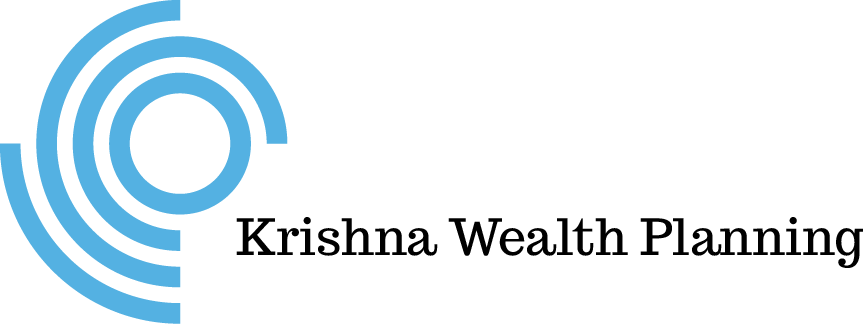5-Minute Read
Not everyone retires at 65, the typical age when Medicare starts. Some people may feel obligated to retire due to a job loss or the need to take care of an ill family member. These situations are sadly more common in today’s environment with the Coronavirus pandemic. Yet there are others, aided with proper planning and execution, who choose to retire at an earlier age. Regardless of situation, one common concern for such an “early” retirement transition is how to effectively find and purchase health insurance. This piece looks at the options you will most likely want to consider and a few of the key questions you will need answered along the way.
A Brief Note about Medicare
This piece covers strategies for those who are NOT eligible for Medicare. If you happen to be Medicare eligible (age 65 but with a couple of exceptions if younger), that is likely the only path for you to consider unless you are married and eligible for insurance through your spouse’s insurance plan. For Medicare, many other considerations are needed to properly sign up and obtain supplemental coverage, but these are not covered in this piece.
One – Obtain Health Insurance from Your Spouse’s Employer
Let’s start with those who are married and have a spouse still working. Are you eligible for health insurance through your spouse’s group health insurance plan? If so, this is probably the first option you will want to explore.
Most group health insurance plans have a regular open enrollment period that is typically near the end of the year. But they also have special enrollment periods whenever a so-called “qualifying event” occurs. A spouse losing health insurance, voluntarily or not, often becomes such a qualifying event.
Work with your spouse’s benefits department to learn their specific requirements, deadlines, and costs of obtaining health insurance. Of course, if you can understand the costs before your retirement transition, that is preferable for planning purposes. Because many employers help subsidize the majority of the costs of health insurance for their employees (and their families), your spouse’s group plan is most likely going to be your most cost-effective solution.
Two – Obtain Health Insurance from Your (Previous) Employer
The next question is: Are you eligible for health insurance from your employer after you retire? Generally, if your employer has 20 or more employees and you had health coverage before retiring, that employer will be required to offer what’s called COBRA coverage. More situations where COBRA is required are noted in this reference from bizfilings.
COBRA can sometimes be a good option if you absolutely want to make sure you retain your current level of coverage and need a convenient solution. Just keep in mind that coverage only lasts for 18 months (29 months if disabled).
Furthermore, the costs of COBRA can be prohibitive because you would be paying the full costs of the insurance without a subsidy from the company, as is typical with a group plan as noted in the previous section. Plans are also allowed to charge an additional 2 percent administration fee to your premium rate.
Finally, a less common but possible option to explore is converting your group policy into an individual policy. There are restrictions with this such as waiting periods and being required to stay with the same insurer for some period of time.
Three – Obtain Health Insurance through the Marketplace
If health insurance coverage is not available through your former employer or your spouse’s employer, you are left to find individual coverage through the marketplace. For people in most states, this marketplace is access through healthcare.gov. There are several states, like California and New York, where you don’t use healthcare.gov and instead go directly to that state’s exchange. The full list of those state can be found here.
Your Out of Pocket Costs Might be Lower than You Think
One of the benefits of obtaining health insurance through the exchange is the premium assistance tax credit, or let’s call it the PATC.
In your early retirement years, if your household income is between $12,490 and $49,960 for one person in a household ($16,910 to $67,640 for two people in the household), you may be eligible for this PATC. For the purposes of this credit, household income is defined as your modified adjusted gross income.
What’s interesting about the PATC is that it is often available even to those with a large accumulated wealth or net worth. This credit doesn’t directly depend on the assets on your balance sheet; it depends instead on your income sources.
Furthermore, household income can often be controlled in early retirement. For example, say you had enough assets for 1-2 years of living expenses in a bank account. Using those assets for spending in the first two years of retirement doesn’t create taxable income.
If early retirement to you means age 62, delaying social security can be a viable option. So can non-traditional income-generating methods like utilizing a reverse mortgage line of credit.
The following is anecdotal and specific results will vary by state. Based on one estimate I ran last year for a 63-year old client retiring “early” with $30,000 of expected household income, we arrived at a tax credit of $851 per month, which resulted in her only needing to pay an actual premium of $202. The particular plan chosen had a $0 deductible, a maximum annual out-of-pocket of $2,700 and covered all of my client’s primary and specialist doctors. In the end, this turned out to be a reasonable solution to fill the gap period before Medicare.
A Few Tips if Obtaining Marketplace Health Insurance
- Since plan coverages are geography specific, so you may need to work with an insurance broker to ensure your preferred local medical providers are covered. The online tools available are often rather good at identifying the providers covered. Calling your doctors’ offices separately to confirm is another precautionary step to take before signing up.
- If you have specific prescription drugs, be sure these drugs (or generic equivalents) are covered under your new plan.
- Dental and vision is typically not covered. You may need to shop for those separately or consider if you have the means to pay those expenses out of pocket. Some dentist offices offer savings plans (not insurance) that could help lower your out of pocket costs.
If you have comments or questions on this piece, please drop me a line at: [email protected]
References
- https://www.medicareinteractive.org/get-answers/medicare-basics/medicare-eligibility-overview/medicare-eligibility-for-those-under-65
- https://www.valuepenguin.com/qualifying-event-health-insurance
- https://www.peoplekeep.com/blog/what-percent-of-health-insurance-is-paid-by-employers
- https://www.bizfilings.com/toolkit/research-topics/office-hr/what-is-cobra-what-employers-need-to-know
- https://www.healthcare.gov/
- https://www.healthcare.gov/marketplace-in-your-state/
- https://www.healthcare.gov/glossary/modified-adjusted-gross-income-magi/
- https://www.nextavenue.org/5-ways-a-reverse-mortgage-can-help-your-retirement/
The information on this site is provided “AS IS” and without warranties of any kind either express or implied. To the fullest extent permissible pursuant to applicable laws, Krishna Wealth Planning LLC (referred to as “KWP”) disclaims all warranties, express or implied, including, but not limited to, implied warranties of merchantability, non-infringement, and suitability for a particular purpose.
KWP does not warrant that the information will be free from error. None of the information provided on this website is intended as investment, tax, accounting or legal advice, as an offer or solicitation of an offer to buy or sell, or as an endorsement of any company, security, fund, or other securities or non-securities offering. The information should not be relied upon for purposes of transacting securities or other investments. Your use of the information is at your sole risk. Under no circumstances shall KWP be liable for any direct, indirect, special or consequential damages that result from the use of, or the inability to use, the materials in this site, even if KWP or a KWP authorized representative has been advised of the possibility of such damages.
In no event shall KWP have any liability to you for damages, losses, and causes of action for accessing this site. Information on this website should not be considered a solicitation to buy, an offer to sell, or a recommendation of any security in any jurisdiction where such offer, solicitation, or recommendation would be unlawful or unauthorized.





